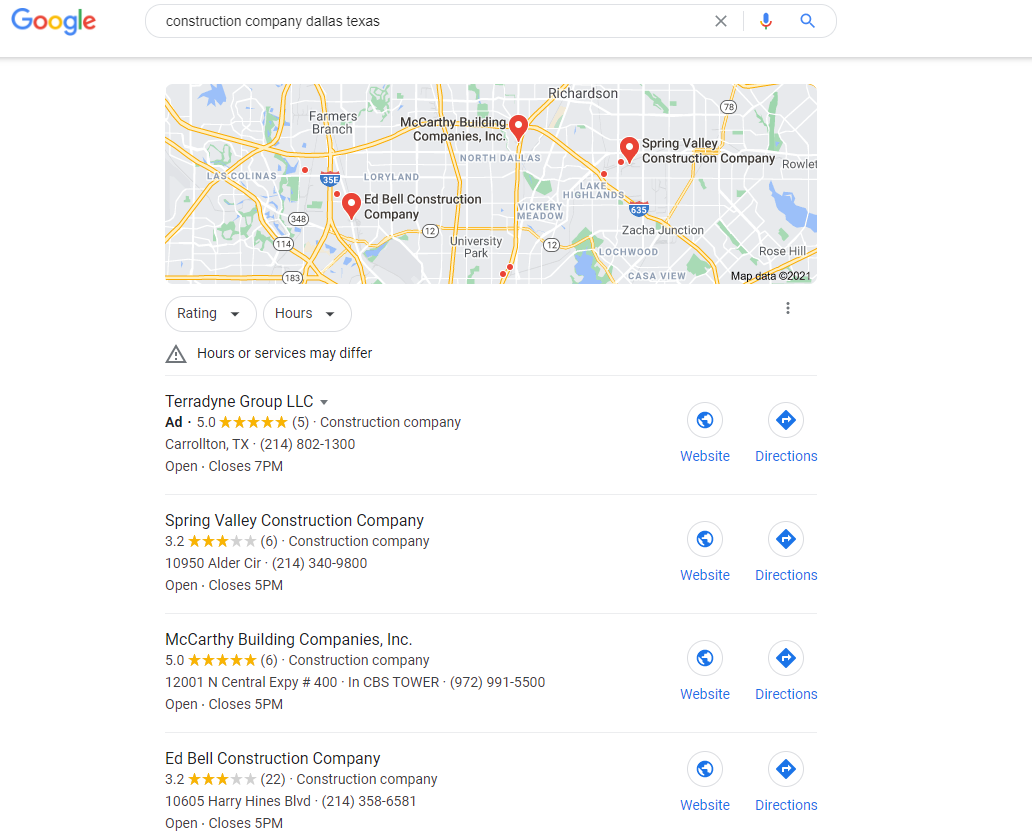
We are reader-supported. When you buy through links on our site, we may earn an affiliate commission.
Starting a business can be an enormous challenge, which is further compounded when you choose a volatile and ever-changing industry like construction. What does it take to form a new business in this industry? Here is our ultimate guide on how to start a construction company.
- Learn the Basics of the Construction Business
- Start With Your Business Plan
- Register Your New Construction Company
- Gather All Your Paperwork
- How to Get Funding for Your Construction Business
- Hiring the Right Construction Team
- Get the Word Out With Smart Marketing
Learn the Basics of the Construction Business
Regardless of the industry you’re interested in working in, before you start moving through the steps to open your doors for the first time, you need to learn the basics of business. This isn’t optional. More than 68% of small-business owners regret not learning the basics before launching their brand.
Starting a construction business isn’t like starting a car. It takes planning, preparation, and, most of all, perseverance. Don’t jump into the deep end with both feet until you’re sure you can swim. This guide is designed to help you figure out the best way to do that.
Start with Your Construction Company Business Plan
You wouldn’t build a house without a blueprint, and you don’t build a company without a business plan. It doesn’t matter what type of business you’re starting, you need a business plan in place before you start trying to take any other steps. This is your blueprint that helps you outline how you’re going to build your empire from the ground up.
The exact details of your business plan will vary, but a standard one usually revolves around these different sections:
- Executive summary: This includes the when, where, why, and how of your company. You’ll have info in this section about why you want to start your construction business, what your overall goals are and what niche you fill in the industry.
- Company description: Break down all the information you provided in the executive summary and go into more detail.
- Market research: Your business research isn’t limited to what happens under your roof. You also need to study the market, analyze your competition, and figure out where your new company will fit in the local hierarchy.
- Services: This section doesn’t need to be massive, but you do need to create a comprehensive list of your company’s services. This will also help you figure out where you’ll need to hire subcontractors to cover skill gaps.
Consider consulting with a professional if you’re unsure where to start when it comes to crafting a business plan.
Next, Register Your New Construction Company
Step two is to register your business with all the applicable entities. The exact details of this process will often vary from state to state, but regardless of where you’re located, you’ll need to decide on what type of business entity you’re going to register as. They come in all shapes and sizes, from a sole proprietorship for individuals who run the business on their own to an LLC or a corporation for larger companies.
Construction companies will generally be registered as LLCs or corporations, depending on their size and the kind of work you’re planning to do. Once you have that under control, you’ll need to obtain an employee identification number or EIN from the IRS. Check with local agencies to determine any other types of registration you might need to complete to make sure everything is aboveboard.
Gather All Your Paperwork
The next step is probably one of the most annoying when you’re starting a new company, but it’s also the most important. You need to go through and obtain any necessary licensing, permitting, and insurance to operate in your state.
This can take all sorts of different forms, from general contractors’ licenses to specialty licenses if you’re going to focus on something like roofing or HVAC. Licensing and registration will establish your legal right to operate in your state and also serve as a trust signal for clients.
Then, remember to research and follow all regulations with licensing once you get started. Many states, including California and Pennsylvania, require home contractors to include their license number on all business advertising. Dig into your state’s laws to verify requirements to avoid the risk of accidentally breaking a law.
Insurance is also essential, both to protect your company and your employees, but eventually to protect your clients as well. You will need insurance to operate anywhere in the United States and likely in many places overseas, so don’t skip this step.
How to Get Funding for Your Construction Business
We’ve reached the most challenging step for any new business — securing funding. This is where all your previous actions start to coalesce into something tangible and real.
There are several ways to fund your new construction business. Depending on your resources and business plan, you can try:
- Self-funding: Some new construction business owners can rely on their own resources to bootstrap their business. This can include drawing from personal savings and assets or working with friends and family to produce startup costs.
- Meeting with investors: Venture capitalists are looking into construction technology startups more now than ever before. However, this is not likely to be the best fit for small, service-based construction companies. Still, meeting with local or regional investors with an interest in the field may allow owners to create partnerships to start their own business.
- Securing a small business loan: Borrowing funds is a very common way for business owners to manage startup costs. Borrowers will want to make sure they have an acceptable credit score and a solid business plan. This can help you secure the best loan amount and interest rate from a bank or credit union.
You’ll need your business plan, registrations, and all your paperwork before you head to the bank or a meeting with an investor. If you’re unprepared, you won’t be able to secure the funding you need to start your business.
Hiring the Right Construction Team
You’ll likely be looking to hire a construction crew or administrative help to get your business off the ground — unless you’re a one-person operation or are getting into business with a small team. Even if you start small, business growth might necessitate hiring a few extra hands.
One way to find qualified, trustworthy construction workers is to plug into your professional network. Former coworkers and local industry professionals and trade associations can help you find out who’s looking for work and learn how to contact them. Getting referrals from people you already know and trust is a tried-and-true way to secure local talent.
There are also numerous hiring resources for new construction companies to look into. Online job boards like ConstructionJobs.com will let you list job openings for workers actively looking for opportunities in the field. More universal job boards like Indeed will work as well.
For a regionally-focused company, don’t forget how valuable local newspapers and listings can be. This is especially true if you live in an area without high access to the Internet. Writing a strong job ad that details work duties, compensation and benefits clearly will do wonders for connecting you to the right candidates.

Learn More: The Cause Behind the Construction Labor Shortage
Finally, if you’re planning to grow, think through ways you can overcome national labor shortages by creating pipelines of qualified talent. Some construction companies find success creating apprenticeship programs that let them mentor and prepare young workers for a successful career. You can also develop partnerships with local trade schools to offer job training.
Get the Word Out With Smart Marketing
Once your new construction company is up and running, it’s time to let people know you exist. Marketing doesn’t have to be especially complicated, especially for a small start-up. Getting a few basics under your belt will help you establish your web presence and local reputation — skills you can focus on advancing as you grow.
First, it’s the Digital Age, so you’ll want to prioritize creating a website. Purchasing a domain name for your business typically costs $12 per year. Purchasing hosting can differ greatly depending on which service you’re looking for, so start researching DIY vs. all-in-one options. Finally, you can always look to hire out this task if you’d like a more professional touch. Just make sure your website is mobile-optimized, too, to accommodate the growing number of visitors who will access your information on their phones.
Then, register your business with Google My Business and any number of other listing services — Angie’s List, Yelp, or more specific industry hubs — so your business will show up on simple searches from customers. Google’s service is free, while other websites may or may not hassle you for advertising costs. Your team can decide what to prioritize as you develop your marketing plans.

Learning how to market your construction company doesn’t stop at digital efforts, of course. Old school strategies like newspaper ads or flyers can do wonders for local word-of-mouth. Creating partnerships with local organizations can also help you craft a great community reputation. Finally, never forget that person-to-person referrals are a huge driver of securing new business, so providing a great service can help you make a splash with new customers.
How to Start a Construction Company: Step By Step
Starting a business might sound like a simple proposition, and in many ways, it is. Following these steps can help you navigate the labyrinth that will eventually lead you to a successful construction business.
Don’t skip steps, and make sure all your ducks are in a row before opening your doors and taking your first contract.









